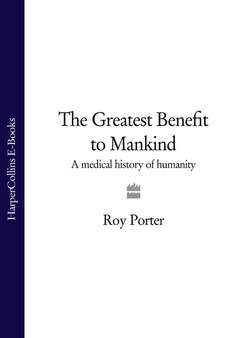Читать книгу The Greatest Benefit to Mankind: A Medical History of Humanity - Roy Porter - Страница 29
CHAPTER IV MEDICINE AND FAITH
ОглавлениеTHE PASSAGE FROM THE GLORIOUS DAYS of Rome to the Middle Ages was often violent, especially in the West, with wave after wave of barbarian onslaughts from the East. These culminated in the sack of the Eternal City by Alaric’s Goths in AD 410, which effectively put an end to the western empire and frayed the thread of learned medicine.
Fortified from AD 324 by its new capital, Constantinople (later Byzantium, modern Istanbul) on the Bosphorus, the eastern empire remained a bastion of imperial strength and a treasury of hellenistic learning and culture. From 364, the empire formally split, the two halves being ruled by separate emperors, and by the close of the sixth century the West had splintered further into fragmented kingdoms ruled by descendants of the invading Goths and Vandals. Its economy was feebler than that of the East, its cities declined or collapsed altogether – Londinium (London), once boasting a population of 30,000, became a ghost town – and civic institutions dwindled. In such circumstances, it was inevitable that eastern and western medicine would go separate ways.
